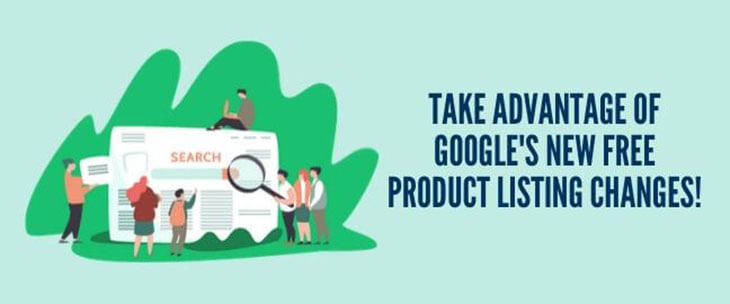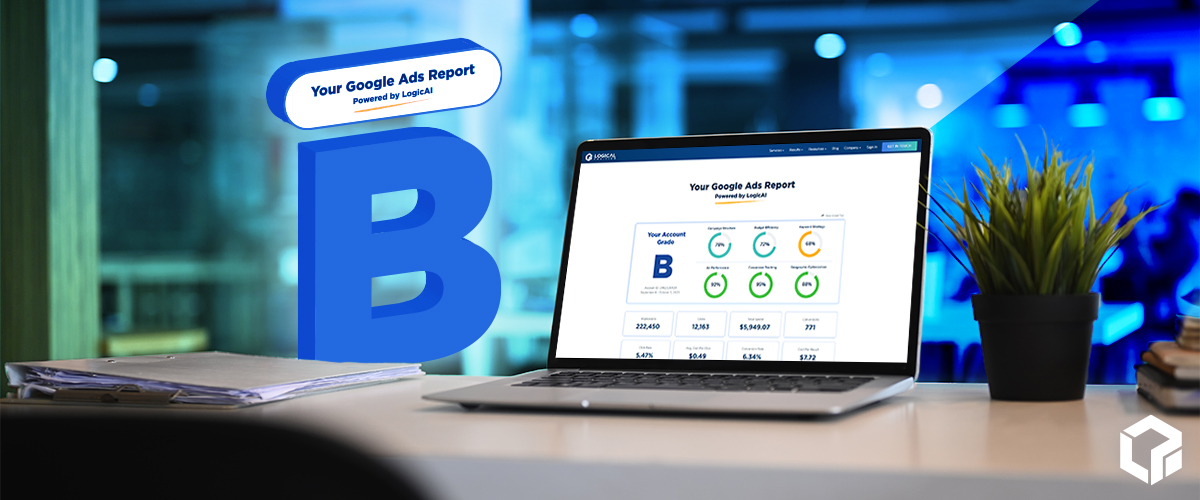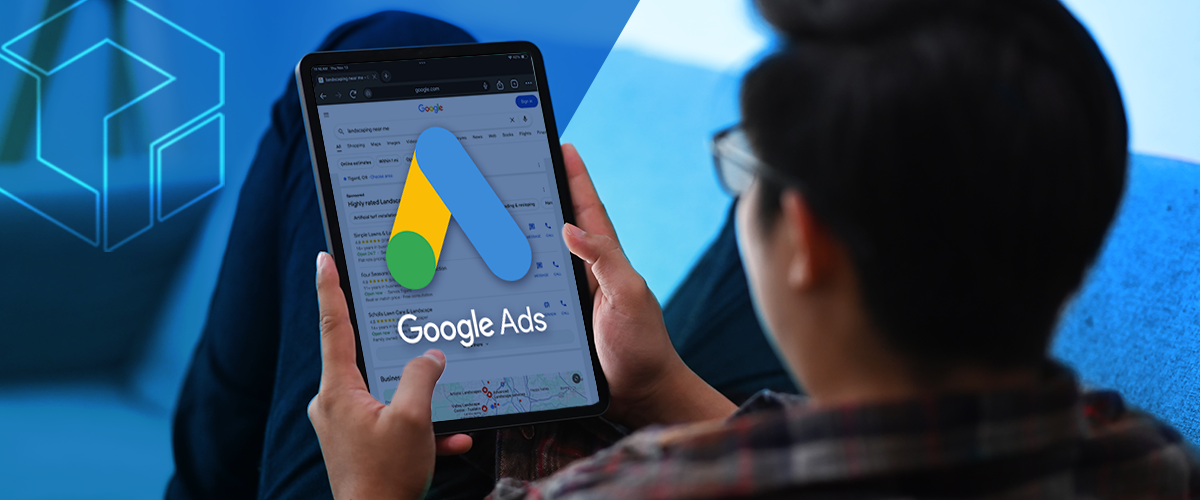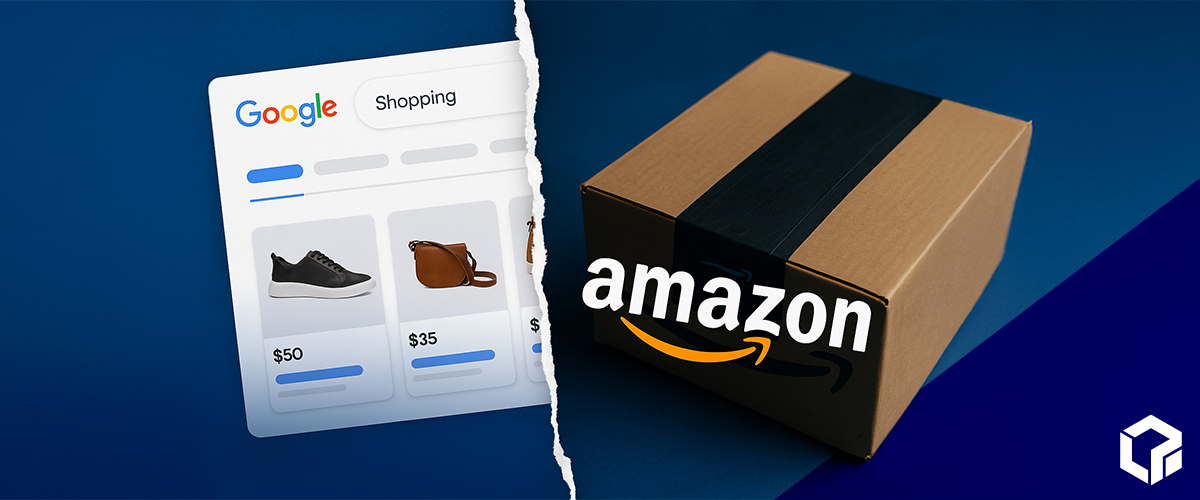Amidst the hit that businesses are experiencing as a result of COVID-19’s rapid evolution, many business owners will be happy to learn of Google’s newest update to product listings on their shopping page. Starting in late April, e-commerce retailers will be able to list their products on Google’s shopping page for free. This development will provide small business owners an opportunity to further integrate themselves into the world of e-commerce and will allow Google to re-solidify its place as a strong contender against Amazon’s influence as a major retailer.
Economic Recession and Beyond

Though this update couldn’t come at a better time, it’s certainly not a temporary one meant only to see us through the recession. While this has likely been in development for a time, Google has expedited the release in order to help business owners during this pandemic. Even as we hope for the economical upset caused by COVID-19 to end, we need to prepare for e-commerce and small businesses to permanently change their practices. The shift that will occur in the world of retail is going to be a substantial one, and Google surreptitiously created something that will pair well with this change.
The listing changes that will take place later this month are meant to be a permanent fixture. While it will only take place in the U.S. initially, Google has plans to expand this on a global scale by the end of the month. The eligibility requirements are similar to the website, landing page, and general business expectations for Google Shopping.
Who Will Benefit?
When businesses such as Google and Amazon determine their practices and algorithms, they are considering not only what they can do for businesses, but also what businesses can do for consumers. As such, we expect to see both sides of the spectrum benefitting from this change. The majority of Google’s shopping tab will now consist of organic, free product listings that benefit from the use of SEO. E-commerce sites following Google’s best practices will find themselves able to potentially grow their brand awareness. For consumers, they’ll see not only paid ads, but they’ll also be exposed to more products that may better serve their needs.
Will Google Still Host Paid Shopping Ads?
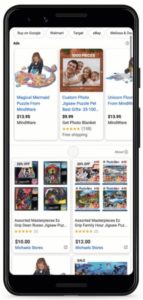
With this new update, the majority of Google’s shopping page will consist of non-paid, organic results. However, Google will not stop displaying paid ads. These will continue to be the dominant result on Google.com SERP. On the shopping tab, paid ads will only show at the top and bottom of the page. The rest of the product listings will be organic results. Though we’ve yet to see how businesses will ultimately react to this new change, it’s possible that those that see positive results from free listings may also branch out to paid ads.
How to Get Involved
With free product listings now available, the question that now stands is how to get involved. If you’re currently running Google Shopping Ads, the good news is that you’re already opted into the program by default. To ensure your products are eligible to show, be sure to review your Google Merchant Center account and check that your products are approved for Surfaces Across Google. If you aren’t running Google Shopping and are starting from scratch, you’ll need to start exploring the process of getting your product data submitted to Google Merchant Center.
Product Data Feeds
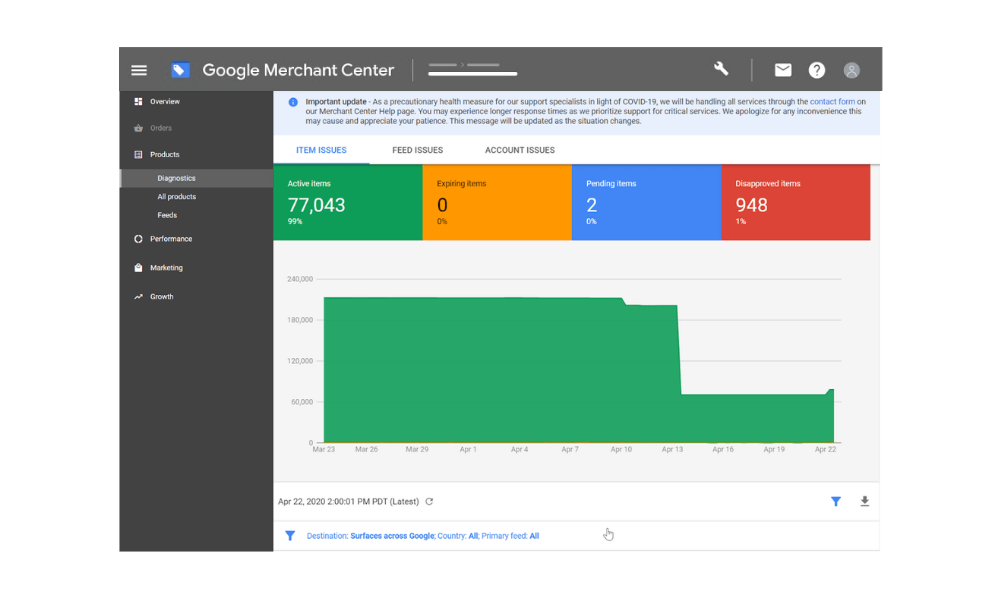
There’s a lot to unpack when it comes to
understanding data feeds, especially when filtering through what Google requires, as well as what is optional but can benefit your business. You’ll want to thoroughly familiarize yourself with the policies for Surfaces Across Google, as well as for shopping ads. It’s important to note that the quality, accuracy and amount of data submitted through Merchant Center will play a large role in your ability to perform. The natural reason for this is that Google requires quality content in order to enhance the user experience. The minimum product data feed requirements are as follows:
- Product ID
- Title
- Description
- Link
- Image link
- Availability
- Price
- Brand
- GTIN
- MPN
- Item group ID
If you’re looking to gain a comprehensive knowledge of data feeds, we recommend that you read through the blog we’ve provided above. This information will benefit you greatly as you begin to set up your business to take advantage of Google’s free product listings and other placements available through Surfaces Across Google.
Tracking Results
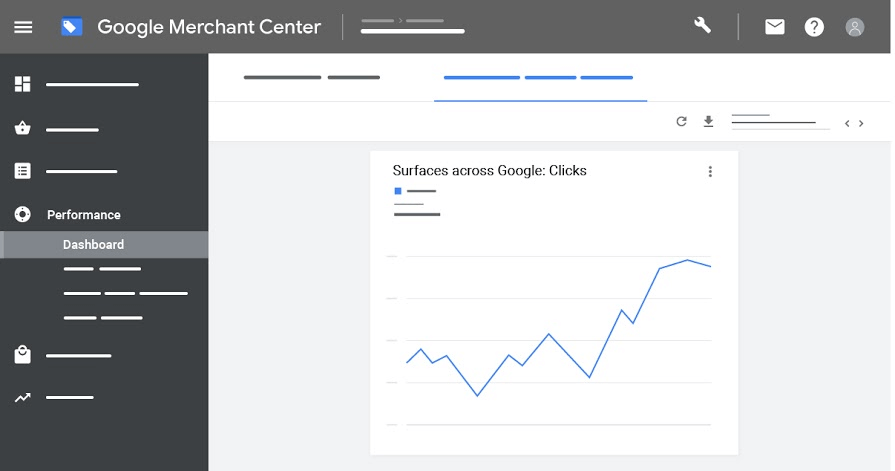
Retailers will have the ability to track their results on the Google Search Console and Google Merchant Center dashboards. The full release of tracking capabilities will be launched by May of this year.
How to Gain Positive Organic Rankings
The natural question that those affected by his update will have is how exactly Google will determine its rankings. Some may remember that Google did have a free listing at one point, years ago. However, the algorithm was flawed, and the quality of the listings didn’t match the standards that they should, so they didn’t provide consumers with the results they wanted. This could cause them to look elsewhere when shopping online. Google switching to paid ads alone seemed to solve the problem.
However, Google’s algorithm has now allowed it to effectively sort through the results and display those that best match the search query. The advanced system they’ve built throughout the years allows them to display free listings while ensuring the positive user experience they strive for. The following are ways that businesses should be able to optimize their listings to rank well organically:
- incredibly important that product titles and other attributes submitted through merchant center are accurate to what you’re offering.
- Competitive pricing is the online retailer’s best friend. Offering quality products at a lower price than that of your competitors is a sure tactic to work your way up the rankings.
- Though competitive pricing is important, this goes hand in hand with good reviews. A product that costs less but has low reviews risks not performing well. Look at how you’re processing reviews and how you can use them to benefit your performance against Google’s algorithm.
PayPal Partnership

Another item to briefly mention is that Google has paired with PayPal to aid business owners in linking with their accounts. According to
Google, “This will speed up our onboarding process and ensure we’re surfacing the highest quality results for our users.” Alongside PayPal, Google continues to work with a collection of partners to make e-commerce accessible for a variety of businesses, regardless of size.
Get Ahead of the Competition
As this is a free service, it benefits your business and your customers to implement your ads now and to begin to work towards gaining your place on the shopping page. We cannot overstate how important it is for businesses to take advantage of this as soon as they can. This starts with getting set up with the Merchant Center and working to optimize your ads. The experts at Logical Position have years of experience in working with clients to get the most out of SEO and Google Shopping. We’re excited that retailers now have the opportunity to expand their business organically, especially during these difficult times. We encourage you to look at our
SEO page and contact us with any questions. We’re excited to see how your business grows from here.
 Though this update couldn’t come at a better time, it’s certainly not a temporary one meant only to see us through the recession. While this has likely been in development for a time, Google has expedited the release in order to help business owners during this pandemic. Even as we hope for the economical upset caused by COVID-19 to end, we need to prepare for e-commerce and small businesses to permanently change their practices. The shift that will occur in the world of retail is going to be a substantial one, and Google surreptitiously created something that will pair well with this change.
The listing changes that will take place later this month are meant to be a permanent fixture. While it will only take place in the U.S. initially, Google has plans to expand this on a global scale by the end of the month. The eligibility requirements are similar to the website, landing page, and general business expectations for Google Shopping.
Though this update couldn’t come at a better time, it’s certainly not a temporary one meant only to see us through the recession. While this has likely been in development for a time, Google has expedited the release in order to help business owners during this pandemic. Even as we hope for the economical upset caused by COVID-19 to end, we need to prepare for e-commerce and small businesses to permanently change their practices. The shift that will occur in the world of retail is going to be a substantial one, and Google surreptitiously created something that will pair well with this change.
The listing changes that will take place later this month are meant to be a permanent fixture. While it will only take place in the U.S. initially, Google has plans to expand this on a global scale by the end of the month. The eligibility requirements are similar to the website, landing page, and general business expectations for Google Shopping.
 With this new update, the majority of Google’s shopping page will consist of non-paid, organic results. However, Google will not stop displaying paid ads. These will continue to be the dominant result on Google.com SERP. On the shopping tab, paid ads will only show at the top and bottom of the page. The rest of the product listings will be organic results. Though we’ve yet to see how businesses will ultimately react to this new change, it’s possible that those that see positive results from free listings may also branch out to paid ads.
With this new update, the majority of Google’s shopping page will consist of non-paid, organic results. However, Google will not stop displaying paid ads. These will continue to be the dominant result on Google.com SERP. On the shopping tab, paid ads will only show at the top and bottom of the page. The rest of the product listings will be organic results. Though we’ve yet to see how businesses will ultimately react to this new change, it’s possible that those that see positive results from free listings may also branch out to paid ads.
 There’s a lot to unpack when it comes to understanding data feeds, especially when filtering through what Google requires, as well as what is optional but can benefit your business. You’ll want to thoroughly familiarize yourself with the policies for Surfaces Across Google, as well as for shopping ads. It’s important to note that the quality, accuracy and amount of data submitted through Merchant Center will play a large role in your ability to perform. The natural reason for this is that Google requires quality content in order to enhance the user experience. The minimum product data feed requirements are as follows:
There’s a lot to unpack when it comes to understanding data feeds, especially when filtering through what Google requires, as well as what is optional but can benefit your business. You’ll want to thoroughly familiarize yourself with the policies for Surfaces Across Google, as well as for shopping ads. It’s important to note that the quality, accuracy and amount of data submitted through Merchant Center will play a large role in your ability to perform. The natural reason for this is that Google requires quality content in order to enhance the user experience. The minimum product data feed requirements are as follows:
 Retailers will have the ability to track their results on the Google Search Console and Google Merchant Center dashboards. The full release of tracking capabilities will be launched by May of this year.
Retailers will have the ability to track their results on the Google Search Console and Google Merchant Center dashboards. The full release of tracking capabilities will be launched by May of this year.
 Another item to briefly mention is that Google has paired with PayPal to aid business owners in linking with their accounts. According to Google, “This will speed up our onboarding process and ensure we’re surfacing the highest quality results for our users.” Alongside PayPal, Google continues to work with a collection of partners to make e-commerce accessible for a variety of businesses, regardless of size.
Another item to briefly mention is that Google has paired with PayPal to aid business owners in linking with their accounts. According to Google, “This will speed up our onboarding process and ensure we’re surfacing the highest quality results for our users.” Alongside PayPal, Google continues to work with a collection of partners to make e-commerce accessible for a variety of businesses, regardless of size.
